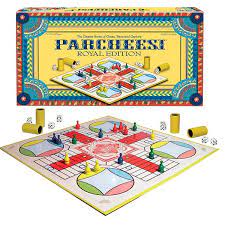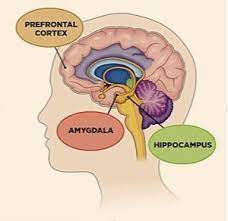I don’t believe that I have ever abused the power, such as it is, of these columns by endorsing a product or service. I didn’t have time this week to reread all 680 of these previous essays to ensure that I have never suggested that my gentle readers buy anything other than a good sleeping bag. Nobody profits from my advising “take your kids to the woods”–except possibly you and your kids. Oh, and I suppose the Parcheesi Lobby owes me a debt of gratitude, but I’m not waiting by the mailbox for my commission check.
But I have to say that I look forward to my Learned League trivia questions every weekday morning. I enjoy the math questions more than the science ones. My knowledge of American history is better than my familiarity with world history, which is better than my recall of geography, a subject about which Sargent Schultz knows more than I. My knowledge of classical music is truly unexceptional and were it not for my inability to get any questions right about popular music would be my most unimpressive category. In short, Ken Jennings has nothing to worry about.
My favorite questions are the ones that I have to think about for several minutes before experiencing that brilliant Eureka flash of insight as my remaining neurons connect. The worst questions are the ones I think about all morning, the answer just out of reach in the recesses of my hippocampus, the questions that cause me to slap myself in the forehead.
Science–Both a genus of typically rod-shaped bacteria and a product developed to kill bacteria (though not this particular type of bacteria) are named after a British surgeon who revolutionized modern surgery by introducing the use of antisepsis in the 1860s. What was his last name?
Such fun! Because even if I don’t know anything about the history of medicine—I don’t—I might be able to look through the pharmacy shelves in my head and find a well-known product for killing germs.
LITERATURE—“Heroic” or “elegiac” (with an abab rhyming pattern in iambic pentameter or iambic trimeter), and “memoriam” (abba in iambic tetrameter) are terms for different types of a stanza that is defined by its four-line structure and is the most common stanza in English verse. By what term is this stanza known?
I call this a “forest for the trees” question because none of those rhyming patterns matter. The relevant clue is “four-line.”
The bringing together of disparate ideas and the ensuing “aha moment” is what Arthur Koestler described in his 1978, Janus, A Summing Up. Learned League hasn’t yet asked about this Hungarian-British humanist, journalist, and author, but if they do, I’ll be ready.
Last question and, finally it could be argued, my point about parenting for this week:
LITERATURE–The woods are lovely, dark and deep / But I have promises to keep…” What seven-word line, repeated, comes next in this excerpt from a 1923 lyric poem?
My dad recited these 16 lines to my mom when they first met in 1954. They were engaged to be married three weeks later. My dad recited these lines to his children, and I have recited these lines to mine. Because we give our kids the gifts we have. If you know how to change the oil in your car, SCUBA dive, build a rocking chair, make oatmeal raisin cookies or recite “Stopping by Woods on a Snowy Evening,” it is more likely that your children will be able to change the oil in their car, SCUBA dive, build a rocking chair, make oatmeal raisin cookies or recite “Stopping by Woods on a Snowy Evening.”
You are a wonderful person and a wonderful parent. You have, in your heart and in your head, that which is valuable to pass on to your beloved children. But you have to “be in it to win it.” You have to find the time to communicate that which is fundamental to you. And your kids have to be open to learning about what is essential to you. They have to me more interested in your experiences and your passions than they are in drinking alcohol and getting into a car.
So I hope you’ll agree that I’m not selling anything. Other than repeating the idea that there’s more to playing Parcheesi with your kids than teaching them probability. Even the erudite folks at Learned League may not be able to write a question that important.
***
The British surgeon was Joseph Lister. A four-line poem is a “quatrain.” And here is the Robert Frost poem:
Stopping by Woods on a Snowy Evening, by Robert Frost
Whose woods these are I think I know.
His house is in the village though;
He will not see me stopping here
To watch his woods fill up with snow.
My little horse must think it queer
To stop without a farmhouse near
Between the woods and frozen lake
The darkest evening of the year.
He gives his harness bells a shake
To ask if there is some mistake.
The only other sound’s the sweep
Of easy wind and downy flake.
The woods are lovely, dark and deep,
But I have promises to keep,
And miles to go before I sleep,
And miles to go before I sleep.






